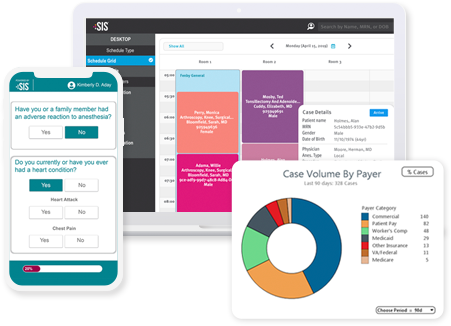 You've been working as the administrator of an ASC for several years, and you're good at it. Your ASC performs well. Physicians and staff are happy. Outcomes are excellent. Distributions are consistent. But for some reason, it's becoming more difficult to get excited about going to work.
You've been working as the administrator of an ASC for several years, and you're good at it. Your ASC performs well. Physicians and staff are happy. Outcomes are excellent. Distributions are consistent. But for some reason, it's becoming more difficult to get excited about going to work.
Does this sound familiar? If so, you might be suffering from burnout. And you're not alone.
Professional burnout is common in all industries. There are many reasons why it seems a growing number of ASC administrators are experiencing burnout. Over the past few years, the position has grown more difficult. It takes tremendous time and effort to keep up with new and ever-changing regulations, standards, and quality measures. Staying profitable isn't as easy as it once was as ASCs face decreasing reimbursement and increasing costs. Effective management of staff from different generations can feel like a full-time job.
Unless identified and addressed, burnout can have significant personal and professional ramifications.
Not sure if you're experiencing burnout? Here are three warning signs to watch for that may point to your experiencing a bigger problem than just having a bad week.
1. You outgrow your position. Routine plays a critical role in the delivery of safe care in an ASC. When a procedure goes according to plan, outcomes are typically strong. But routine in a job can take its toll. If you experience the following:
- you arrive at work and begin your day the same way you always do;
- you walk through the facility and say hello to everyone;
- you smile and try to look upbeat;
- you go to your office and log onto the computer;
- you pull up your to-do list;
- you stare at the screen, feeling emotionless …
… it may be time for a change. While it's unreasonable to expect excitement every day you come into the ASC, extended disinterest or ennui may indicate the need for the "next step" in your career.
2. You feel trapped. Once a leader gets to the bored, but complacent stage, it can become more difficult to stay engaged with the challenges of running the ASC (e.g., keeping up with employee issues, chasing down required information). The thought of possibly changing jobs may sound exciting, but also scary. After all, there's no guarantee of success in a new position.
The easy option is to stay put and try to deal with the boredom, hoping it will eventually pass. The harder option is to move on. If you feel like you're stuck in the sand, at least beginning to explore professional options may be necessary if you want to avoid falling deeper into complacency.
3. You question your position or career. There's a great song by Peggy Lee titled "Is That All There Is?" While this makes for a nice line in a chorus, it's not a great sentiment for a job. Finding yourself asking "Is that all there is?" about your position may reveal the true feelings you possess about where you are in your career.
To learn about more burnout warning signs, what to do when you spot them, and possible options for the next stage in your career, attend my ASCA 2018 session, "Leadership 301: Exploring New Challenges," scheduled for Thursday, April 12, from 2:20pm–3:50pm.



















